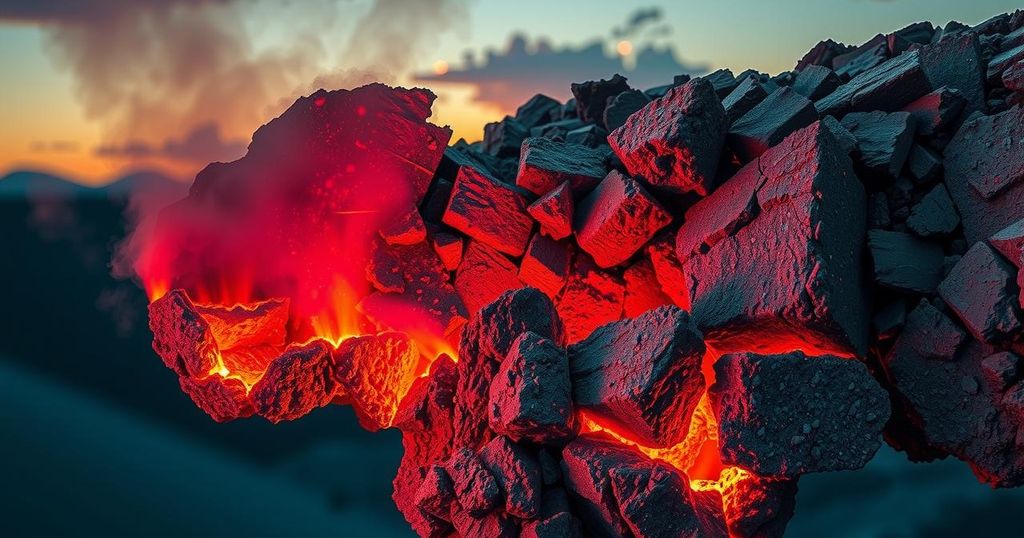DRC Challenges Apple in Landmark Conflict Mineral Lawsuit

The Democratic Republic of Congo has filed a historic lawsuit against Apple, alleging the company’s illicit use of conflict minerals in its supply chain. This legal action highlights the exploitation of resources from conflict regions and seeks to hold major corporations accountable for their sourcing practices. With growing scrutiny from advocacy groups and consumers, the case represents a significant development in the ongoing battle against the trade of ‘blood minerals’ in the DRC and beyond.
This week, the Democratic Republic of Congo (DRC) initiated an unprecedented legal action against American technology company Apple, focusing on allegations regarding the illicit use of conflict minerals in its supply chain. The DRC aims to address the exploitation of so-called ‘blood minerals’ prevalent in the region, which are sourced from conflict-affected areas and are crucial for the production of high-tech devices. The trial, taking place in France and Belgium, has garnered attention from various stakeholders, including consumers and non-governmental organizations, who are advocating for corporate accountability in mineral sourcing.
Conflict minerals, which encompass resources such as tantalum, tin, tungsten, gold, cobalt, coltan, and lithium, are primarily located within the African Great Lakes region, particularly in eastern DRC. These minerals are essential for the manufacturing of smartphones, electric vehicle batteries, and other advanced technologies. In response to the unethical trade practices associated with these resources, the NGO Global Witness established a transition team aimed at combating illegal mining operations.
A report by Global Witness in May 2022 identified that major international brands, including Apple, Intel, and Tesla, incorporate minerals sourced from conflict areas into their products. Despite Apple’s claims of having ceased sourcing conflict minerals from Central Africa, scrutiny over its supply chain practices persists, with the DRC’s legal actions serving as a potential catalyst for significant change. This trial represents a pivotal moment in the broader discourse surrounding corporate responsibility regarding conflict minerals and could pave the way for additional legal pursuits targeting technology firms involved in similar disputes.
The ongoing issue of conflict minerals in the Democratic Republic of Congo (DRC) reveals the complexities at the intersection of technology, human rights, and environmental concerns. The DRC is rich in valuable minerals, crucial for modern technology, yet the extraction of these resources often fuels violence and exploitation within the region. The term ‘conflict minerals’ was defined by the Organization for Economic Co-operation and Development (OECD) to describe minerals mined in conflict zones, which poses risks not just to human rights but also to global supply chains. Various international brands rely on these minerals while facing increasing pressure from consumers and advocacy groups to ensure their procurement does not contribute to violence or human rights abuses. The case brought against Apple highlights the growing legal scrutiny technology companies face concerning their mineral sourcing practices.
In conclusion, the DRC’s legal action against Apple marks a progressive step in addressing the broader issues surrounding conflict minerals and corporate responsibility. As stakeholders increasingly demand transparency in mineral supply chains, this case may set a precedent for more rigorous legal challenges against companies profiting from conflict-laden resources. The outcomes of this trial could lead to a significant shift in the accountability measures implemented by multinational corporations involved in the mining and sourcing of critical minerals, ultimately aiming to curtail illicit practices and promote ethical standards in global trade.
Original Source: www.rfi.fr




